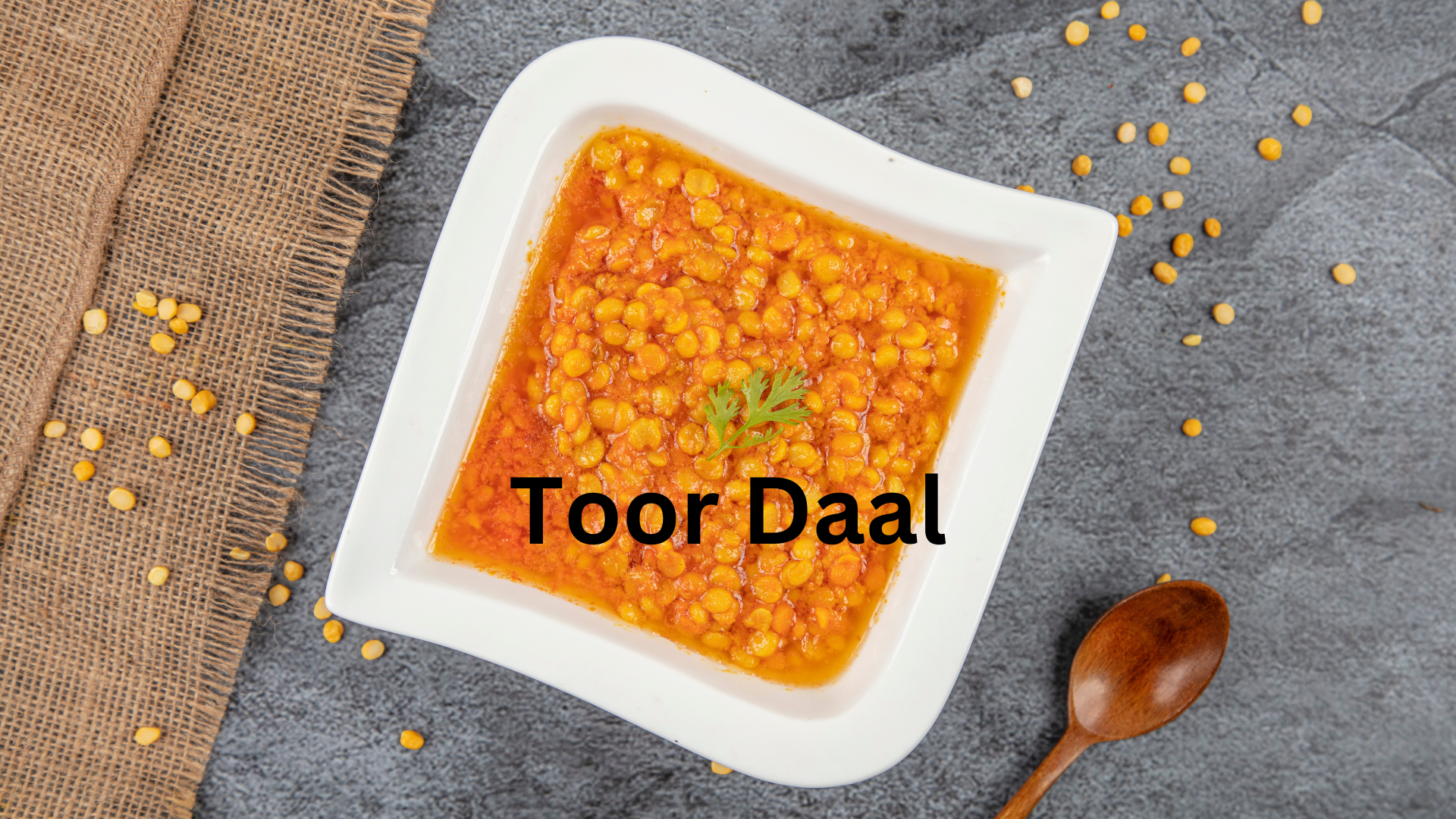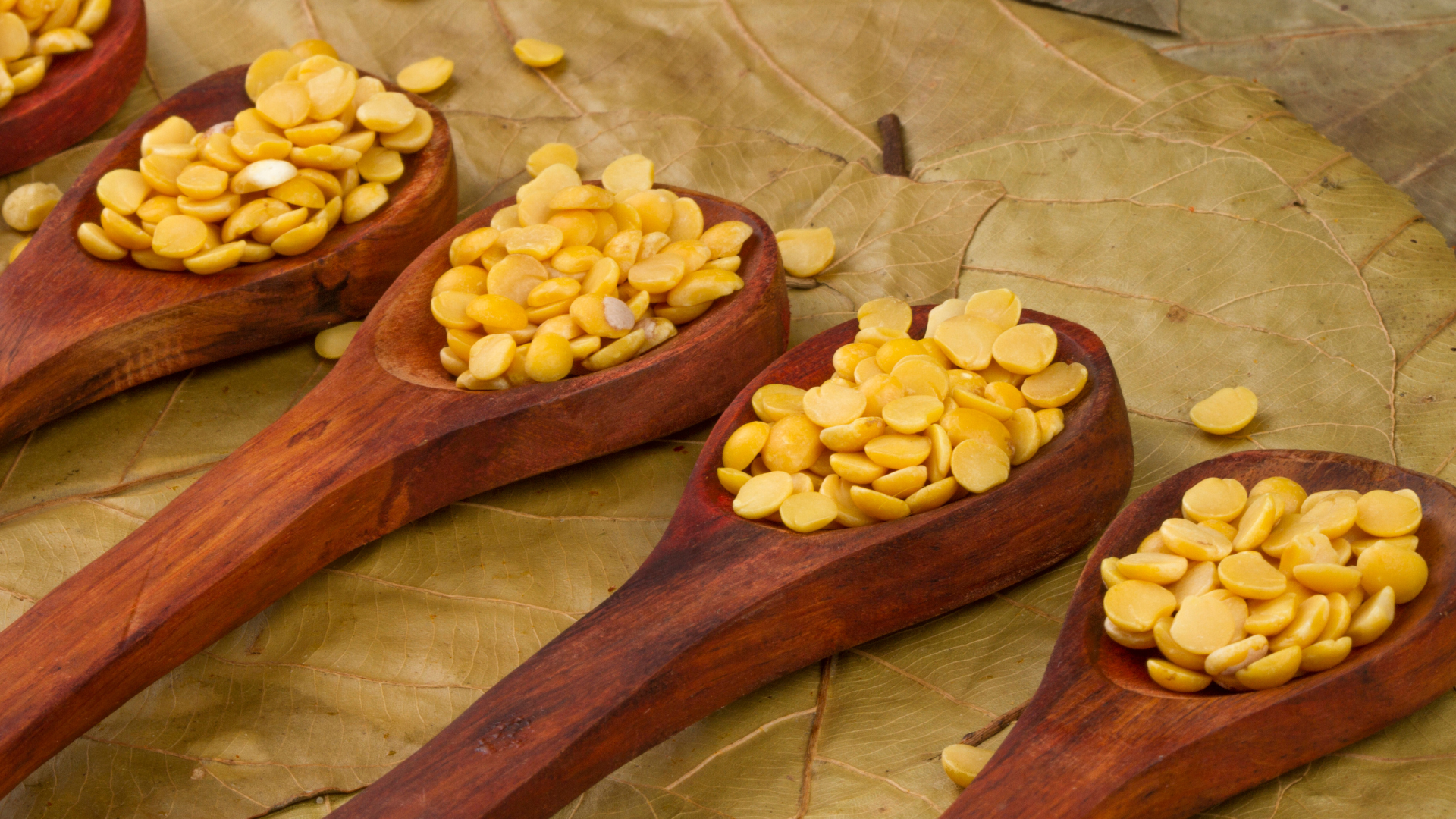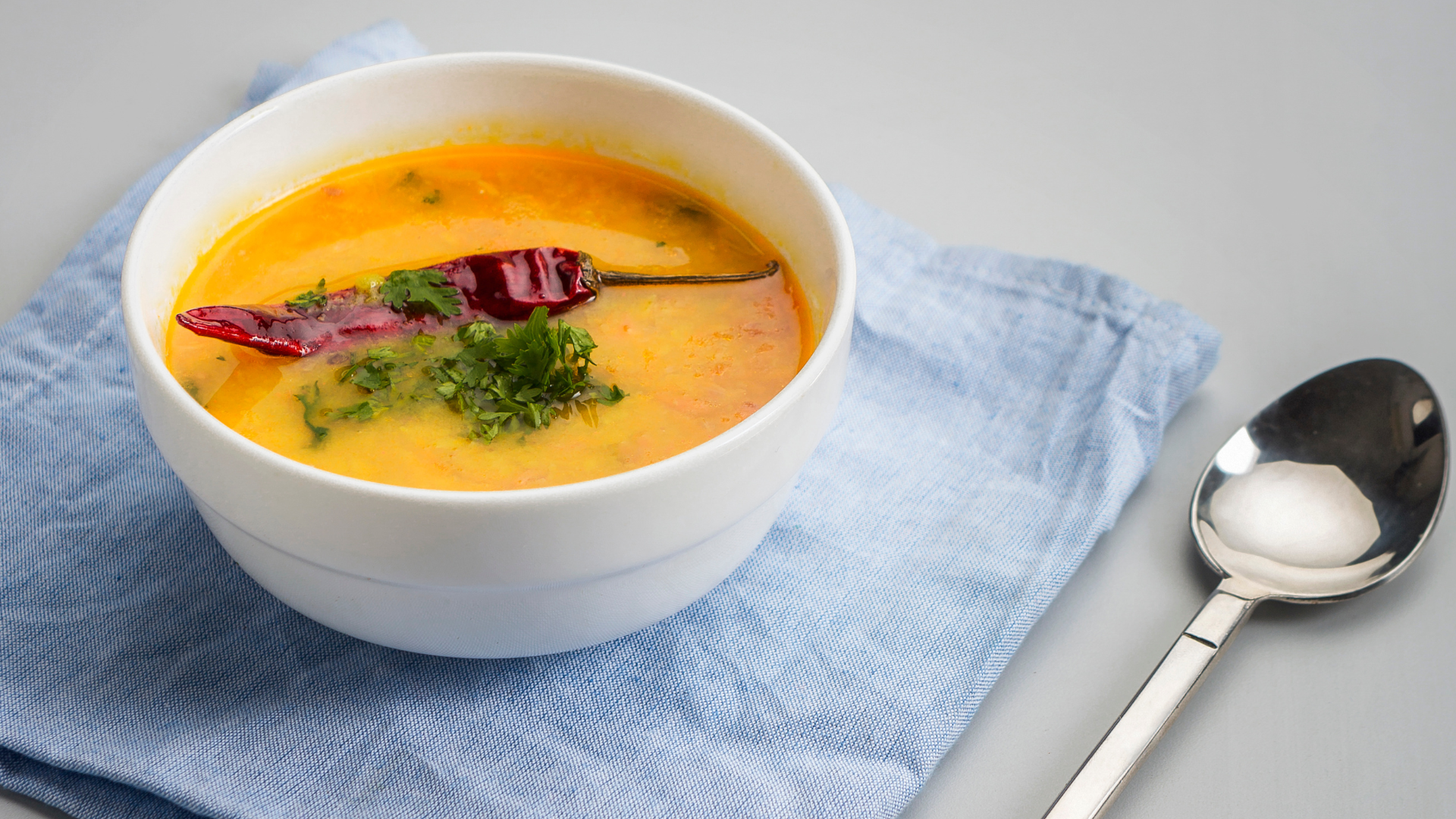Toor Dal, commonly known as Arhar Dal or Pigeon Pea is a foundational ingredient in Indian cuisine. Its significance extends beyond its culinary uses as it stands as a nutritional powerhouse and provide multiple health benefits. Its versatility makes it an essential part of a balanced diet and offer both taste and nourishment.

What is Toor Dal?
Toor Dal, a member of the legume family, is a dried and split pulse extensively used in Indian cooking. Its rich nutty flavor and ability to easily absorb the essence of spices and other ingredients make it a favorite in diverse culinary preparations. Toor Dal is available in various forms, including whole, split and polished varieties.
Where to Find Toor Dal?
This versatile legume predominantly thrives in regions like India, Africa, and the Caribbean. It’s a staple in Indian households and is readily available in Indian grocery stores globally. Moreover, with the rise of online marketplaces by acquiring Toor Dal has become convenient for individuals worldwide and allow them to access this essential ingredient.
Nutritional Value of Toor Dal:
Toor Dal is not just a delicious addition to meals; it’s a nutrient-dense powerhouse. A 100-gram serving typically contains around 22 grams of protein and make it an ideal protein source for vegetarians and vegans. Alongside its protein content, Toor Dal is rich in dietary fiber, aiding in digestion and promoting a feeling of fullness. Its mineral profile includes iron, magnesium, potassium, and an array of B vitamins, which are essential for various bodily functions.

Why Consume Toor Dal?
Incorporating Toor Dal into one’s diet offers a multitude of health benefits. Its high protein content makes it an excellent choice for muscle repair and growth. The fiber content aids in maintaining a healthy digestive system and can contribute to weight management. Furthermore, the presence of minerals like potassium and magnesium helps regulate blood pressure and support heart health. Its versatility in cooking makes it an easy addition to various dishes, from simple dals to more complex recipes, offering both taste and nutrition.
Toor Dal benefits?
Rich in Protein: Toor dal is a high-protein legume, making it an excellent plant-based protein source for vegetarians and vegans.
Dietary Fiber Content: Toor dal is a good source of dietary fiber, which supports digestive health, helps regulate blood sugar levels, and contributes to a feeling of fullness.
Nutrient-Rich: Toor dal is rich in essential nutrients such as iron, potassium, and folate, contributing to overall well-being and supporting functions like blood cell formation and blood pressure regulation.
Three Delicious Toor Dal Recipes:
Toor Dal Tadka:
Ingredients:
- 1 cup Toor Dal
- 3 cups water
- 2 tablespoons ghee or oil
- 1 teaspoon cumin seeds
- 1 medium onion, finely chopped
- 2 tomatoes, chopped
- 1/2 teaspoon turmeric powder
- Salt to taste
- 1 teaspoon red chili powder (adjust to taste)
- 1 teaspoon coriander powder
- 1 teaspoon garam masala
- Chopped cilantro for garnish (optional)
Instructions:
- Rinse the Toor Dal in cold water until the water runs clear. In a pot, add the dal and water. Boil the dal until it’s soft and mushy.
- This can take about 30-40 minutes.
- In a separate pan, heat ghee or oil over medium heat. Add cumin seeds and let them sizzle.
- Add chopped onions and sauté until they turn golden brown. Then, add chopped tomatoes and cook until they soften.
- Add turmeric, salt, red chili powder, coriander powder, and garam masala. Stir well.
- Transfer the cooked Toor Dal into the pan and mix everything together. Let it simmer for a few minutes to allow the flavors to blend.
- Garnish with chopped cilantro and serve hot with rice or flatbread.
Toor Dal Khichdi:
Ingredients:
- 1 cup Toor Dal
- 1 cup rice
- 3 cups water
- 2 tablespoons ghee or oil
- 1 teaspoon cumin seeds
- 1 onion, finely chopped
- 1 carrot, diced
- 1 potato, diced
- 1/2 cup green peas (optional)
- 1/2 teaspoon turmeric powder
- Salt to taste
- Chopped cilantro for garnish (optional)
Instructions:
- Rinse the Toor Dal and rice separately. In a pot, add the dal, rice, and water. Cook until it’s well-cooked and mushy, about 40-50 minutes.
- In a separate pan, heat ghee or oil over medium heat. Add cumin seeds and let them sizzle.
- Add chopped onions and sauté until they turn translucent. Then, add diced vegetables and cook until they’re slightly tender.
- Add turmeric and salt. Mix well.
- Combine the cooked dal-rice mixture with the vegetables and stir gently. Let it simmer for a few minutes.
- Garnish with chopped cilantro and serve hot.

Toor Dal Soup:
Ingredients:
- 1 cup Toor Dal
- 4 cups vegetable or chicken broth
- 1 onion, chopped
- 2 garlic cloves, minced
- 1 carrot, chopped
- 1 celery stalk, chopped
- 1 teaspoon cumin powder
- 1/2 teaspoon turmeric powder
- Salt and pepper to taste
- Chopped fresh parsley for garnish (optional)
Instructions:
- Rinse the Toor Dal in cold water. In a pot, add the dal and broth. Bring it to a boil and then let it simmer for about 40-45 minutes or until the dal is soft and mushy.
- In a separate pan, heat a bit of oil. Sauté onions and garlic until translucent.
- Add chopped carrots and celery. Sauté for a few minutes until they start to soften.
- Add cumin powder, turmeric, salt, and pepper. Stir well.
- Combine the cooked dal with the vegetables and broth. Bring it to a simmer for 10-15 minutes.
- Blend the mixture using an immersion blender or regular blender for a smooth consistency.
- Garnish with chopped parsley and serve hot.
FAQs About Toor Dal:
Q: Can Toor Dal be prepared without a pressure cooker?
A: Yes, Toor Dal can be cooked without a pressure cooker. Soak the dal for a few hours to reduce cooking time, then boil it in a regular pot with enough water until it softens and achieves a creamy consistency.
Q: How can I store Toor Dal for a longer shelf life?
A: Store Toor Dal in an airtight container in a cool, dry place away from direct sunlight. This helps retain its quality and prevents any infestation. If stored properly, Toor Dal can last for up to a year. Refrigeration can further extend its shelf life.
Q: Is Toor Dal suitable for individuals with dietary restrictions such as a low-carb diet?
A: Toor Dal, though rich in protein and nutrients, contains a moderate amount of carbohydrates. While it’s not low-carb, the fiber content and slow-digesting nature of legumes like Toor Dal can be suitable for many dietary plans. However, individuals following strict low-carb diets might need to moderate their portions to fit their dietary requirements.
Q: Can Toor Dal cause allergies or sensitivities in some individuals?
A: Toor Dal, like other legumes, can potentially cause allergies in some individuals. Allergic reactions to legumes are rare but possible. Symptoms might include itching, hives, swelling, or, in severe cases, anaphylaxis. It’s advised to consult a healthcare professional if you suspect an allergic reaction after consuming Toor Dal.
Q: Is Toor Dal suitable for infants or young children?
A: Toor Dal is a nutritious food for infants and young children. However, it’s crucial to introduce new foods gradually and in accordance with the child’s age and dietary recommendations. Toor Dal can be introduced to infants in pureed or mashed forms after consulting with a pediatrician, as it provides essential nutrients for their growth and development.